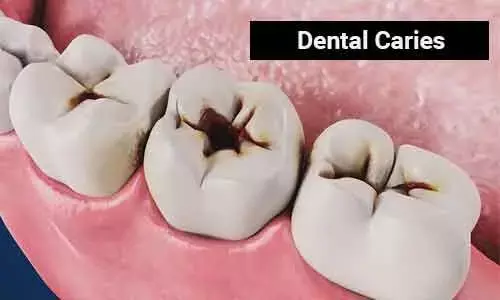- Home
- Medical news & Guidelines
- Anesthesiology
- Cardiology and CTVS
- Critical Care
- Dentistry
- Dermatology
- Diabetes and Endocrinology
- ENT
- Gastroenterology
- Medicine
- Nephrology
- Neurology
- Obstretics-Gynaecology
- Oncology
- Ophthalmology
- Orthopaedics
- Pediatrics-Neonatology
- Psychiatry
- Pulmonology
- Radiology
- Surgery
- Urology
- Laboratory Medicine
- Diet
- Nursing
- Paramedical
- Physiotherapy
- Health news
- Fact Check
- Bone Health Fact Check
- Brain Health Fact Check
- Cancer Related Fact Check
- Child Care Fact Check
- Dental and oral health fact check
- Diabetes and metabolic health fact check
- Diet and Nutrition Fact Check
- Eye and ENT Care Fact Check
- Fitness fact check
- Gut health fact check
- Heart health fact check
- Kidney health fact check
- Medical education fact check
- Men's health fact check
- Respiratory fact check
- Skin and hair care fact check
- Vaccine and Immunization fact check
- Women's health fact check
- AYUSH
- State News
- Andaman and Nicobar Islands
- Andhra Pradesh
- Arunachal Pradesh
- Assam
- Bihar
- Chandigarh
- Chattisgarh
- Dadra and Nagar Haveli
- Daman and Diu
- Delhi
- Goa
- Gujarat
- Haryana
- Himachal Pradesh
- Jammu & Kashmir
- Jharkhand
- Karnataka
- Kerala
- Ladakh
- Lakshadweep
- Madhya Pradesh
- Maharashtra
- Manipur
- Meghalaya
- Mizoram
- Nagaland
- Odisha
- Puducherry
- Punjab
- Rajasthan
- Sikkim
- Tamil Nadu
- Telangana
- Tripura
- Uttar Pradesh
- Uttrakhand
- West Bengal
- Medical Education
- Industry
Self-assembling peptides may help remineralize enamel caries, Finds study

According to recent research, it has been clinically observed that self-assembling peptides may be a viable option to remineralize enamel caries.
The study is published in the Journal of Dentistry.
Self-assembling peptides are biomedical materials with unique structures that are formed in response to various environmental conditions. Governed by their physicochemical characteristics, the peptides can form a variety of structures with greater reactivity than conventional non-biological materials.
R.J.Wierichs and colleagues from the Department of Restorative, Preventive and Pediatric Dentistry, School of Dental Medicine, University of Bern, Switzerland conducted the present review where they systematically analyzed clinical studies investigating the efficacy of self-assembling peptides (SAP) to reduce initiation of or to remineralize initial caries lesions.
The authors conducted prospective controlled (non-)randomized clinical trials helpful in investigating the efficacy of a self-assembling peptide compared to any other (placebo) treatment or untreated/standard control. Outcomes were visual analog scale (VAS), laser fluorescence, ICDAS score or morphometric measurements.
Seven studies with 508 teeth being affected in 294 patients were included. All studies were randomized controlled trials (RCT), five with a split-mouth and two with a parallel-arm design. Meta-analysis could be performed for SAP (plus fluoride varnish (FV)) vs. no treatment (plus FV) (control treatment).
The following findings were revealed-
- Depending on the outcome after up to 12 months SAP showed a significantly higher optical improvement than the control treatment (laser fluorescence: Standardized Mean Difference (SMD)[95 %CI] = −0.87[−1.39,−0.34; VAS: Mean Difference (MD)[95 %CI] = −35.38[−43.13,−27.64]) or no significant difference could be observed (ICDAS/activity score; Relative Risk (RR)[95 %CI] = 0.6[0.21,1.74]; morphometric measurements: SMD[95 %CI] = −1.95[−4.54,0.65]).
- Level of evidence was very low for all 4 outcomes.
- Furthermore, six studies showed a high risk of bias and six studies were (partially) funded by the manufactures of the tested products.
Hence, the authors concluded that "Self-assembling peptides may be a viable option to remineralize enamel caries."
Dr. Nandita Mohan is a practicing pediatric dentist with more than 5 years of clinical work experience. Along with this, she is equally interested in keeping herself up to date about the latest developments in the field of medicine and dentistry which is the driving force for her to be in association with Medical Dialogues. She also has her name attached with many publications; both national and international. She has pursued her BDS from Rajiv Gandhi University of Health Sciences, Bangalore and later went to enter her dream specialty (MDS) in the Department of Pedodontics and Preventive Dentistry from Pt. B.D. Sharma University of Health Sciences. Through all the years of experience, her core interest in learning something new has never stopped. She can be contacted at editorial@medicaldialogues.in. Contact no. 011-43720751
Dr Kamal Kant Kohli-MBBS, DTCD- a chest specialist with more than 30 years of practice and a flair for writing clinical articles, Dr Kamal Kant Kohli joined Medical Dialogues as a Chief Editor of Medical News. Besides writing articles, as an editor, he proofreads and verifies all the medical content published on Medical Dialogues including those coming from journals, studies,medical conferences,guidelines etc. Email: drkohli@medicaldialogues.in. Contact no. 011-43720751


